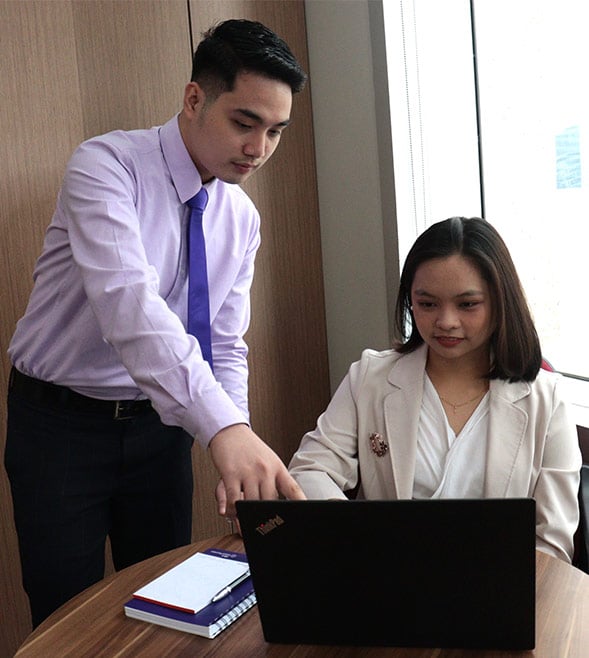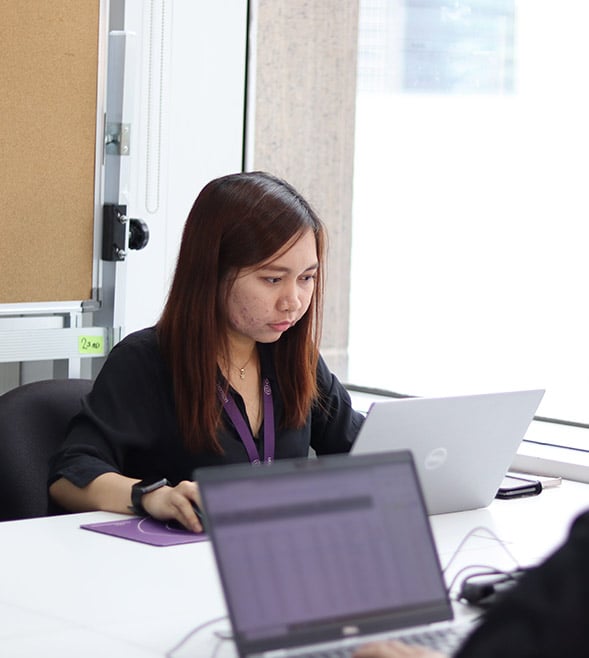Change remains a constant force, shaping not only our personal lives but also the world and the businesses we operate in. What was once a quiet neighbourhood may now rise as a vibrant skyline, reflecting broader shifts driven by rapid innovation, and evolving global dynamics.
Now that we’ve moved past the halfway point of the year, these transformations continue to reveal both new opportunities and emerging challenges. In July, P&A Grant Thornton hosted P&Anorama: 2026 Economic Outlook & Industry Shifts Unpacked, a forum that offered a forward-looking perspective on how geopolitical shifts, technological advancements, artificial intelligence, and sustainability goals are reshaping business expectations and strategic priorities
Let’s take a closer look at the key trends, risks, and opportunities that are shaping what’s next.
Offices, classrooms, and even households have come abuzz with talks of “tariff” echoing in almost every part of the world. US President Donald Trump’s “Liberation Day” speech on April 2, 2025, triggered a peak in Google web and news searches of the word “tariff” and other relevant topics as Trump announced US’ imposition of wide-ranging reciprocal tariffs on all countries in the world.
During our P&Anorama forum last July, Prof. Emmanuel Leyco, Chief Economist at Credit Rating and Investors Services Philippines, Inc., cited a report from S&P Global warning that the U.S. tariff policy could slow global economic growth and disrupt supply chain relationships. This concern is echoed by the World Bank’s Global Economic Prospects, which forecasts a global slowdown to 2.3%, driven by rising tariff barriers, policy uncertainty, inflation, and tighter financial conditions.
With significant export exposure to advanced economies, the country faces heightened vulnerability. As of August 7, Philippine goods exported to the U.S. are subject to a 19% tariff, an adjusted rate following negotiations between President Ferdinand Marcos Jr. and President Trump. Initially set at 17% in April and raised to 20% in July, the slight reduction has sparked mixed reactions. While some view it as a diplomatic win, others warn of deeper economic consequences.
Analysts caution that higher prices on Philippine exports such as tobacco, garments, and leather goods, could lead to reduced orders and job losses. Agricultural products and food items are also expected to be hit hard. Of particular concern is Trump’s early August threat to impose a 100% tariff on semiconductors. While details remain unclear, the Philippines could face significant repercussions, given that semiconductors are among its top exports.
With major economic shifts, many countries have sought to find opportunities to partner with others. In response to these global shifts, Prof. Leyco outlined key strategies for the Philippines, especially as an emerging market and developing economy.
Rebuild trade relations – Diversify beyond traditional partners like the U.S. and China. Explore intra-Asia trade and build ties with countries in Africa and Europe, some of which may offer untapped potential.
Restore fiscal order – Government aid programs or “ayuda” are causing high fiscal deficit due to sustained public spending. Other stagnant programs must be nipped in the bud.
Accelerate job creation - Focus on generating meaningful employment that improves living standards and supports long-term economic resilience.
Prof. Leyco also emphasized the importance of tapping into emerging industries. With the rise of artificial intelligence, the Philippines has an opportunity to explore new avenues for growth by positioning itself as a provider of solutions in high-impact sectors such as healthcare and finance. By investing in innovation and strengthening digital capabilities, businesses can enhance their global competitiveness and adapt more effectively to shifting economic conditions.
Driving sustainability in businesses
As economies adjust to shifting policies and global uncertainties, the growing impact of climate change, resource depletion, and environmental degradation has made sustainability a strategic priority. Today, sustainability is no longer a buzzword—it is a global imperative that influences how businesses operate, how governments legislate, and how individuals live.
In 2020, the United Nations launched the Race to Zero campaign, aiming to limit global temperature rise to 1.5°C by achieving net-zero carbon emissions by 2050. Shell Philippines is among the local companies committed to this goal. Stanley Siahetiong, Energy Transition Manager at Shell Philippines, shared during the forum that the company aims to reach net-zero emissions by 2030 through a holistic approach, respecting nature, creating shareholder value, fostering inter-business collaboration, and supporting communities.
In a world increasingly shaped by policies aimed at protecting the planet, clients are demanding greater sustainability, transparency, and accountability across their entire supply chains. According to Charina Morales, Business Lead for Technology at the Semiconductor and Electronics Industries in the Philippines (SEIPI), these expectations are especially critical for energy-intensive sectors. Morales emphasized that SEIPI is actively incorporating green buildings, smart energy systems, and advanced manufacturing powered by green technology as part of its commitment to building a resilient, low-carbon future.
Speaking on the role of green buildings, Mikko Baranda, Director at Lee Chiu Property Consultants, Inc., emphasized that these structures are not only environmentally responsible but also economically advantageous. Baranda explained that green buildings incorporate technologies that reduce utility consumption and lower operating expenses. Additionally, their resilience to climate-related risks can lead to reduced insurance costs, making them a smart investment for both sustainability and long-term financial performance.
Creating value with digital transformation
Digital transformation has reshaped the business landscape, creating new opportunities by improving employee engagement and productivity through customer innovation, creating capacity to focus on value-added tasks, and unlocking revenue models, according to Branden Dean, vice president of Intelligent Automation Technologies at PLDT and Smart Communications. He also stressed that with great technological power comes the need for responsible governance. AI must be regulated, monitored, and ethically guided to ensure it serves society’s best interests.
For the fintech industry, NextBank Software president James To shared they can predict their customers’ paying habits based on demographics with the help of AI. Additionally, they have deployed AI in completing repetitive tasks as well as for customer service engagement. Five years from now, To highlighted that customers’ banking experience will be more personalised with the continuous adaptation of AI in businesses.
While AI has changed business dynamics, there is a growing concern among workforces that eventually, they will be replaced by this technology. Dominic Ligot, data analyst and consultant for IT & Business Process Association of the Philippines, highlighted their objective for the BPO industry to not retrench people for AI, but instead maximise its capabilities through doubling productivity.
Onto the next
As industries continue to face rapid technological advancements, shifting market demands, and emerging global challenges, organisations must stay informed and agile. The evolving landscape of businesses and communities highlights the need for adaptability and strategic foresight.
After all, “change is the only constant in life”. Let this be among our guiding principles, so that we are ready to face the future with confidence in navigating challenges and seizing opportunities with our best foot forward.
As published in The Manila Times, dated 03 September 2025




